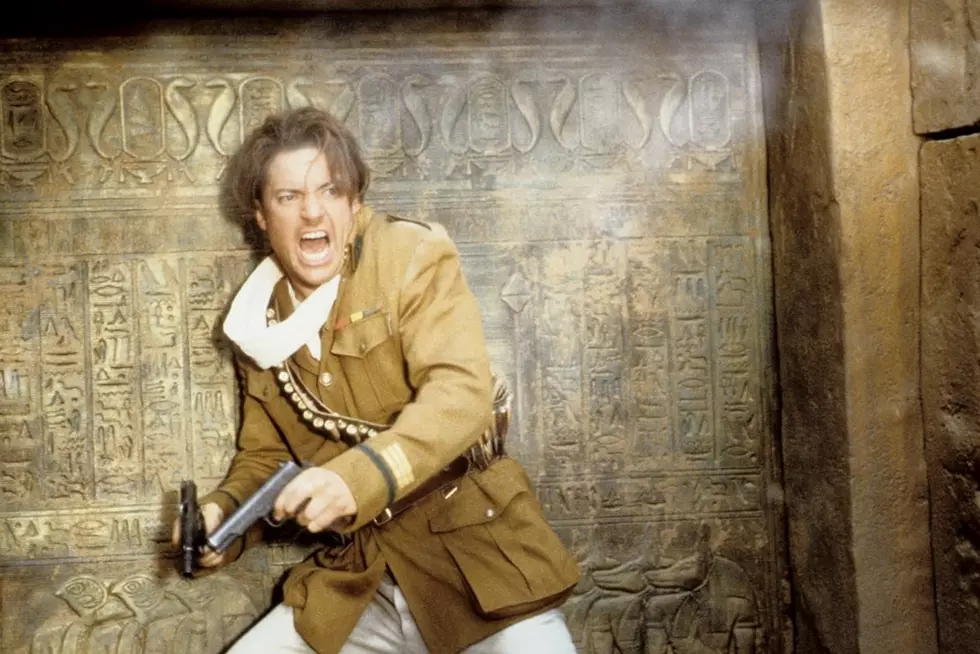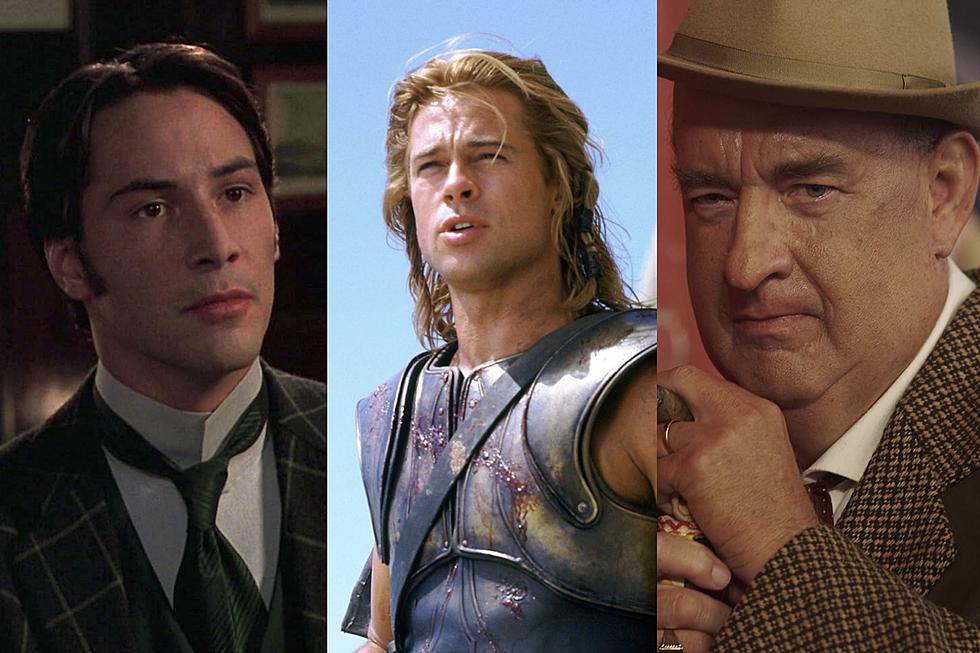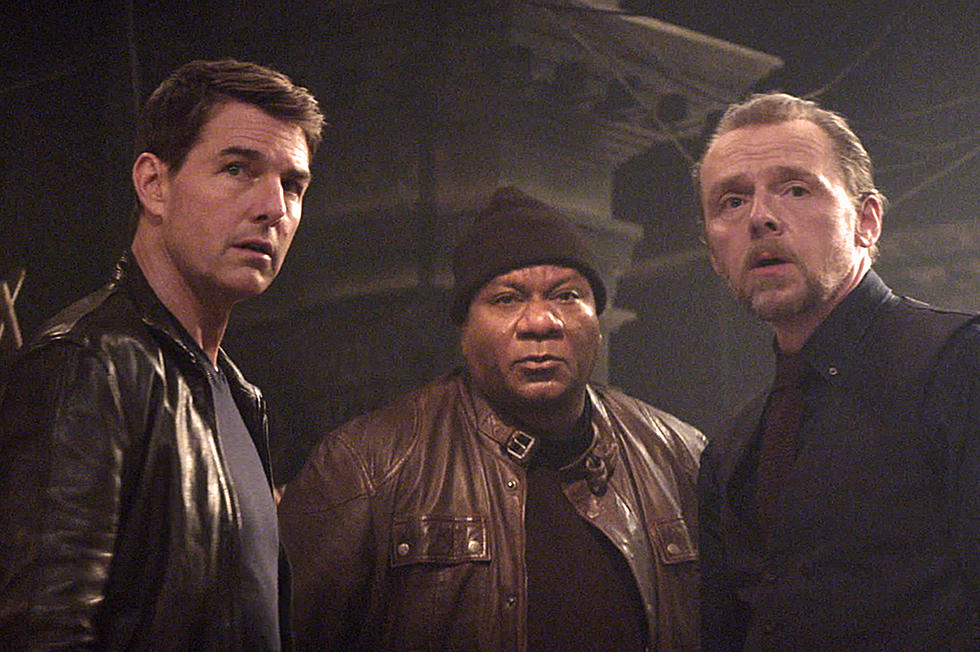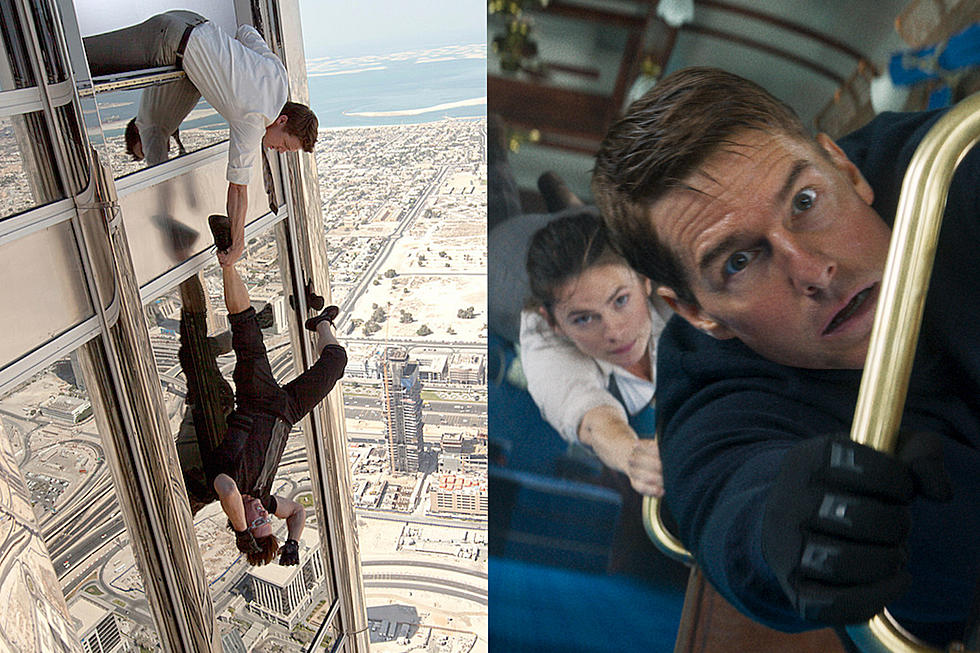
Alex Kurtzman’s Big Monster Movie Universe Approach Sounds a Lot Like the MCU
The first trailer for The Mummy hit the internet last night, and it left us with a lot of questions about Alex Kurtzman’s new action-horror flick, such as: Has Tom Cruise always shouted “whoa!” like an early ’90s teen TV character, or are we just now noticing it? (It’s delightful, by the way.) Is Kurtzman a fan of Queen of the Damned? (This seems implied by Sofia Boutella’s titular villain, but ya never know.) And chiefly — inspired by the brief cameo from Russell Crowe’s Dr. Jekyll — how will Kurtzman’s film pave the way for his larger monster movie universe?
Are we looking at another franchise built from the ceiling down, like the DC movies? That’s our biggest concern, considering that Kurtzman, Chris Morgan and their writers’ room at Universal are plotting an entire interconnected universe of films, including reboots of The Wolf Man, Bride of Frankenstein and more. Dr. Henry Jekyll’s inclusion in The Mummy certainly reinforces the whole “cart before the horse” notion, but according to Kurtzman, their approach is a little less like DC, and a little more like Marvel — which is to say that they aren’t going to make the monster version of The Avengers unless audiences enjoy these individual films enough to justify it.
While speaking with /Film during a recent event for The Mummy, Kurtzman acknowledged that it’s the audience that will determine the future of the Universal Monsters franchise — not the studio:
I believe strongly that the only way you can build a universe is not to start by trying to build a universe, that if you want to get there, the only way you’re going to get there is if the audience allows you to get there. Meaning, you have to do great individual films first. The audience has to fall in love with those movies first, and those characters first, and if they do and you develop an organic story reason to start bringing them together, great! But you can’t start with “Let’s just mash everybody together.”
Kurtzman went on to point out that the classic Universal Monsters franchise was the first to really give the whole shared universe crossover thing a try with movies like Frankenstein Meets the Wolf Man — which was based entirely on the success of previous standalone films and sequels.
As for Dr. Jekyll, Kurtzman says they never would have written him into the story if it didn’t feel organic to do so:
In looking to figure out how to place The Mummy in a larger context and setting up this organization that has actually been dealing with monsters for longer than any of us have been around, it became clear that we needed somebody to be the voice of that organization. The next thought was like, “Well, it could be Joe Mcgillicuddy, or we could actually go into another character that makes sense organically.” It was a real point of conversation with Tom. If we’re going to bring in Henry Jekyll, how is bringing Henry Jekyll into the mummy story not a detractor from the mummy story? How does Henry Jekyll become part of this story in an organic way? And part of what Tom’s character, Nick, learns about the mummy and about the history of the mummy comes through Jekyll’s very deep understanding of monsters and how monsters have existing quietly in this world for eons.
The way Kurtzman describes it (and the way it looks in the trailer), Jekyll sounds like the Universal Monsters version of Nick Fury, and to be honest, I am 100 percent OK with a franchise that wants to make Russell Crowe the glue that holds its universe together.
In any case, it’s clear that Kurtzman & Co. have no plans to force an entire franchise into theaters if there isn’t an interested — and invested — fan base. And that’s great news, considering the alternative, which would be something like Warner Bros.’ backwards approach with DC movies — which feels insultingly presumptuous about what its audience wants.
The Mummy hits theaters on June 9, 2017.
More From ScreenCrush









